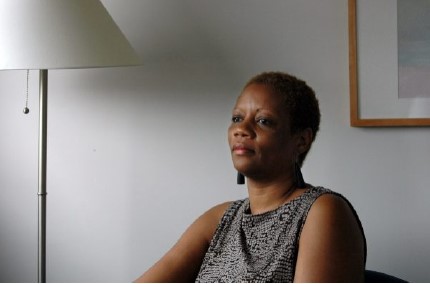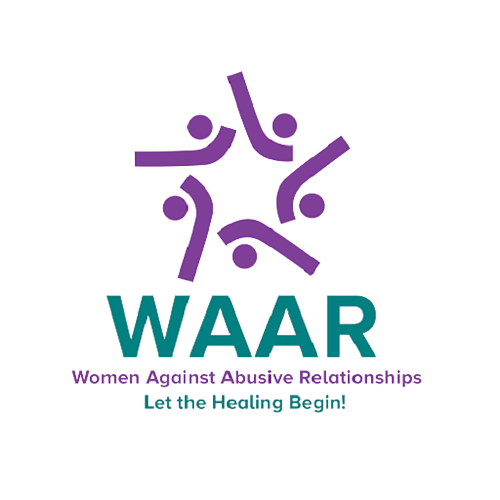Transformed by violence: Domestic abuse survivor becomes an outspoken prevention advocate
Twelve years ago, by all appearances, Roxanne E. Epperson had a life to be envied. She was single, vivacious and though she lived in a dark, dreary apartment in the Hill District, it was a place to call her own.
At night, she came home to her live-in boyfriend, a charming portrait artist whose smile had even won over Epperson’s mom.
He sounded like a prince.
Instead, alone with Epperson, he was more like a beast.
One gray November night he came into the apartment, took his fists, and pounded at her body and spirit. His attacks left her black, blue, and silent.
On this night, he struck with a ferocity that Epperson had not seen before.
He put his hands around her neck and choked the breath out of her.

Robin Rombach, Post-Gazette
A nearly fatal beating opened Roxanne E. Epperson’s eyes to the reality that she was the victim of intimate partner abuse.
She lay on the floor unconscious. On this night, dark, black, and violent, she nearly died. But when she woke, Epperson faced a truth she had never confronted: she was a battered woman.
If misery loves company, Epperson, 49, an outreach worker at Magee-Womens Hospital, had plenty.
Nearly 5.3 million women in America 18 and older are physically or emotionally battered, according to the Centers for Disease Control and Prevention in Atlanta. Of that number, 1.2 million are left injured and 1,300 die.
Though it took her decades to realize it, a confluence of cruel factors helped to shape Epperson’s pain.
Family dysfunction, poverty, childhood abuse, having verbally abusive partners, experts agree, all make people vulnerable to being an abuser and put others at risk for being abused.
To varying degrees, each of these touched Epperson, who now lives in Wilkinsburg, as she was growing up.
A native of the Hill District, she was 5 when her mother moved to Baltimore after separating from Epperson’s abusive step-father.
In Baltimore, her mom worked nights and her daughter at a young age became a latch-key child who fell into a peer group that was growing up too fast. Epperson dated early and studied little. She was often around an extended circle of family and friends, a few of whom abused her physically and verbally.
At 12, teenage boys in the neighborhood told her she had a body that destined her to be a prostitute. That didn’t happen, but the statement made her not like her body for many years.
“I felt trapped by a generational curse,” said Epperson. “All around me, I didn’t have any model of someone in a long-term, healthy relationship.” Girlfriends weren’t much help, because, she said, “they didn’t know any better.”
For women of color, the problem of domestic abuse often is exacerbated because of poverty and lack of education.
And in Pittsburgh, there’s another complicating element: Black women date black men, a population that local studies suggest is most stricken by high unemployment, drug use and low academic achievement, all factors likely to increase the risk of someone being a batterer.
As Epperson grew, so did the abuse.
- At age 7, she was left with a babysitter who forced Epperson to suckle her breast.
- At 13, she was raped three times by her 19-year-old boyfriend, a heroin user.
- At 16, she was raped by an older family friend.
- At 18, a jitney driver drove her into the dark woods, parked and forced her to fondle him.
Each violation left Epperson feeling dirty. First she cried. Then she’d run home and take a bath, hoping to wash the guilt and shame down the drain.
Each time, she forced the abuse to the back corners of her mind.
In a sad way though, perhaps the most brutal attack was the most transforming.
It happened when Epperson was 37. She met a man, handsome and debonair. After nearly a year, he moved in with her and the abuse began within months.
At first, it was all verbal. But it stung, nonetheless. “Your nose is too big for that haircut,” he told Epperson, a woman who wears a short-cropped hairstyle. He lied and frequently called all women in Pittsburgh “stupid bitches.” “This statement about women was a red flag that I was not aware of at the time,” she said.
She put him out, but before long she let him back in.
After all, “I thought I was in love,” she said. “I now know it was not love, because love does not hurt.”
One night, he spat in her face, dragged her down a hallway, punched her and strangled her.
By almost ending her life, he gave her a new one.
In the months and years before that night, “it was like I was brainwashed,” she said. “But when I came to, I felt like Roxanne was back. I kicked him out. But it took me four or five years to get back to my true self.”
Slowly, she became brave enough to confront the past, and own up to her status as a battered woman.
Eight years ago, Epperson, a volunteer with the Ben E. King Foundation, was invited to attend a foundation golf tournament in Virginia.
At the tournament, she came across a letter in a program book from the National Coalition Against Domestic Violence.
She learned of the group’s national conference, won a scholarship, raised $1,000 through her church and friends — one gave her $20 to buy a sandwich — and went to Portland, Ore.
At the conference, said Epperson, “I found all this wonderful information and understood that I needed help.”
She also learned a new term “intimate partner violence,” a broader name for physical, sexual, emotional abuse, or the threat of it, by a spouse, ex-spouse, current or former boyfriend or dating partner.
It wasn’t long before Epperson began to break her silence on being abused.
It happened first at her church, Mount Ararat in East Liberty, where she had to take new membership classes, one of which dealt with forgiveness.
The class instructor, the Rev. Joan Prentice noticed Epperson’s struggles. In their private counsel, she revealed her past.
It became a mission to help other women avoid this path.
For a while she ran a domestic violence ministry at the church. She also founded Women Against Abusive Relationships, an awareness, education and prevention program for teens and female adults. The group’s mission is to break the cycle of violence and teach participants the signs of abusive behavior. Through Magee-Womens Hospital it offers workshops to help women make informed choices for healthy relationships.
In these safe, sacred circles, embraced by other survivors, Epperson found her own strength and began to speak out more: on WAMO’s Stop the Music/Stop the Violence, to women’s groups and to conference audiences.
Earlier this year, she gathered with nearly 250 other women of color for a session on “Black and Blue: Violence in the Lives of Black Women” and listened to a speaker who encouraged an end to the secrets and lies.
“That session definitely encouraged me to speak,” she said. “It made it OK to talk about it.”
After all, she said, “why should I be ashamed of what was done to me? I didn’t do it. The perpetrators should be ashamed of their behavior. I’m also hoping that mothers will pay close attention to who they leave their children with and listen to them, and believe them, if they tell you that someone touched them inappropriately.”
Most days, Epperson considers herself a survivor, or as Laverne Baker Hotep of the Center for Victims of Violence and Crime called her, a “wounded healer,” someone with the personal experience of domestic violence who works to change the lives of others, including herself.
“I am almost 50,” she smiles, “but my next relationship will be a healthy one. I refuse to have it any other way.”
(Ervin Dyer can be reached at edyer@post-gazette.com or 412-263-1410.)

